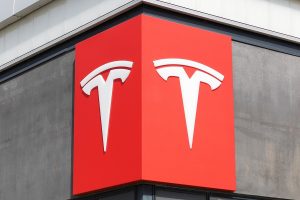Written by Samie Leigh
 Publicly traded companies often have significant value in their intangible assets. These assets can include goodwill, branding and intellectual property. Thus, it is prudent for an inventor or startup owner to invest in protecting their intellectual property. This includes protecting a patent portfolio.
Publicly traded companies often have significant value in their intangible assets. These assets can include goodwill, branding and intellectual property. Thus, it is prudent for an inventor or startup owner to invest in protecting their intellectual property. This includes protecting a patent portfolio.
The Open Source Movement
Recently, large companies have traded IP protection in exchange for removing barriers to technological innovation for others. This is a movement called “the open source movement.” Elon Musk, the CEO of Tesla, announced Tesla’s open source position in a company blog post in 2014.
Musk explained, “Tesla Motors was created to accelerate the advent of sustainable transport. If we clear a path to the creation of compelling electric vehicles, but then lay intellectual property landmines behind us to inhibit others, we are acting in a manner contrary to that goal. Tesla will not initiate patent lawsuits against anyone who, in good faith, wants to use our technology.” You can find his announcement in a Patent Pledge section of the “Legal” page of Tesla.com.
What Is Tesla’s Patent Pledge?
The Patent Pledge provisions make it clear that this is not a free dedication to the public. Rather, Tesla only pledges not to start an infringement lawsuit against parties acting in good faith. A party acting in good faith is further defined in the passage reproduced below.
“A party is ‘acting in good faith’ for so long as such party and its related or affiliated companies have not: asserted, helped others assert or had a financial stake in any assertion of (i) any patent or other intellectual property right against Tesla or (ii) any patent right against a third party for its use of technologies relating to electric vehicles or related equipment; challenged, helped others challenge, or had a financial stake in any challenge to any Tesla patent; or marketed or sold any knock-off product (e.g., a product created by imitating or copying the design or appearance of a Tesla product or which suggests an association with or endorsement by Tesla) or provided any material assistance to another party doing so.”
What Does Tesla’s Patent Pledge Mean?
Tesla is essentially asking companies to give up rights to assert any IP right against Tesla. This presumably includes trademarks, copyrights and patents. This allows Tesla to use the IP of these participating companies without fear of litigation.
Moreover, the companies are also required to adopt their own patent pledge to others for the use of EV technology. Effectively, parties that want to take advantage of the Tesla pledge are being asked by Tesla to expose its IP cards to get a seat at the EV table—a showdown against the industry leader and all third-party competitors.
Unsurprisingly, many EV space participants have been hesitant of using Tesla’s patents. It appears that patent pledges of this nature intend to encourage innovation and participation in the industry. Yet, it also underscores the importance of intellectual property as Tesla continues to invest in patents and leverage them to dissuade others from enforcing their own rights.
Do You Have Questions About Patents or Intellectual Property Law?
If you have questions about patent law or your rights, contact us Our Dallas patent attorneys can help you understand your legal options. Call us today at 972-367-2001.

